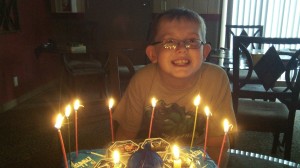 Psychology
Psychology  5 Comments
5 Comments Forget Forgiveness
I’m an excellent audience. I listen attentively. I nod agreement, I shake my head in reproof. I gasp, I groan, I giggle. I smile my encouragement throughout, and applaud heartily at the end. If every listener were like me, speech classes wouldn’t be nearly so dreadful.
But I walked out on a sermon at church this Sunday.
The speaker was a very nice man, visiting the church while our pastor was doing a guest stint for another congregation. He worked very hard to be engaging, though I felt like Google and Bartlett’s Familiar Quotations should’ve been given sponsorship ads. But when he started spouting tired nostrums about why it was a moral imperative for everyone to practice forgiveness to be a good person, I couldn’t take it. (I did my very best to look like I was on a mission, rather than just marching out down the main aisle in a huff.)
And just what provoking topic stirred me so strongly I couldn’t sit still?
Forgiveness.
Yeah, you read that right. Forgiveness is a huge hot-button issue for me. I have many of the finer feelings: love for my fellow humans, compassion, empathy, helpfulness. I’d like to think I’m an honorable, honest, and generally decent person.
But forgiveness is vastly overrated.
Much of my resistance comes from my wide contrarian streak. When a person is hurt or abused, modern society tells that person that they can’t heal, can’t be whole, unless they forgive the abuser. There are no allowances made for whether the injury was accidental or intentional. The pressure to forgive begins almost immediately. And nothing irks me more than being told I “can’t do” something.
Forgiveness isn’t even just for social equilibrium or a restorative justice system to function–because heavens know we don’t have either of those. No, people are told they must forgive to purge the poisons of trauma and grief, lest they irreversibly damage the body and soul. Psychologists have published dozens of studies* to demonstrate that forgiveness has an impact on physical and mental health. Whole legions of therapists and motivational speakers have built an industry on wildly cathartic activities to free people from past wrongs and the harm they continue to inflict.
In theory, none of these are bad things. Holding grudges isn’t healthy in any sense of the word, and sometimes a good crying jag or public exorcism of wrongs is the best cure available. I’m certainly not advocating grinding every axe by the saturnine light, or keeping extensive lists with titles like “People I Will Not Warn About The Impending Invasion” (though that can be a satisfying short-term exercise).
But the pressure that society puts on people to forgive and forget wrongs small and great gets internalized, and if you can’t see your way to forgiving the guilty party, then you’re left to wonder what’s wrong with you. A person who can’t forgive is treated like our society currently treats a smoker– as an immature person who indulges a destructive habit out of spiteful pleasure or addiction.
I’d like to see a more nuanced discussion of what’s needed and what’s healthy in the wake of trauma and heartache. In my case, I draw a bright line between “letting go” and “forgiving.” We all let dozens of daily slights pass away after a moment of tooth-grinding and curse-muttering. A realistic person recognizes just how little they can control in their world, least of all their human neighbors’ actions and feelings. When you can’t let go, you’re hooked as securely as a fish on a line. The Buddhists have a word for this: shenpa; the Western Buddhist nun Pema Chodron has a wonderful series of lectures on how to get and stay off that hook (here’s just an excerpt). Ironically, some people don’t feel that criminals and other wrongdoers deserve forgiveness because it “lets them off the hook,” when it’s not uncommon for the injured one to be far more firmly hooked than the injurer.
I’m not saying that “forgiveness” and “absolution” are the same thing, either. Forgiveness doesn’t require you to forego an admission of guilt and responsibility from the person who committed the wrongful act. Taking responsibility for your actions is integral to any mutual healing and restorative process, not to mention every 12-step program out there.
So it’s right and good for me to let the past go, but my forgiveness is a gift. It’s mine to give or not, and I’m not harming anyone–least of all myself–by choosing not to bestow that gift on someone who hasn’t shown the slightest interest in taking responsibility or making amends for the harm that was done to me or my loved ones. I’m not giving myself fibromyalgia or depression or cancer by choosing to see things this way. I’m not preventing my wrongdoers the chance to move on with their lives, and I’m not stuck in the past myself. I’m not waiting for anyone to earn my forgiveness, either–in fact, no one can earn it.
So in the comfort you offer anyone who’s been hurt (including yourself), on whatever scale, don’t tell them that they need to forgive. Nobody needs to forgive to be whole, and we need to learn to be able to make amends and move on without having been forgiven for our own mistakes. Those who are hurt don’t feel control over much of their lives, so don’t insist on forgiveness for anyone’s “good.” The best gifts, both given and received, are the ones that are neither required nor expected, and those in pain need them the most.
* From the most cursory Google search, here’s one from doctors, therapists, religious leaders, and Oprah, for cryin’ out loud.
